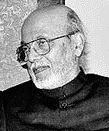
Christian Science Monitor
Bonding with America ...
Akhlaq e Amrikiye : A Manual for Survival
of Muslims in America - 5
By Professor Nazeer Ahmed
Concord, CA

The Heady Horizons of Reason
“I think, therefore I am” is the succinct way this view can be summarized. It implies that man is what he is because of his rational faculties. This view dates back to the classical period of the Greeks of which Aristotle was one of the great masters. It was refined and developed by Muslim scholars in the classical period of Islamic civilization.
Ibn Rushd (1126 - 1198 CE), “The Commentator” as he is referred to by Western writers, is considered the greatest disciple of Aristotle. The West came into contact with rational thought through a translation of Arabic works into Latin in the eleventh and twelfth centuries. The response of the Medieval Latin West to rational inquiry was of profound significance to the development of Western thought. St Thomas Aquinas wrote: “Some truths can be known only from revelation and belong to theology - for example, the mysteries of the Trinity and Incarnation. Some truths are proper to philosophy - for example, the physical constituents of bodies.” (Encyclopedia Americana, Vol. 2, p. 141, 1987, Philosophy and Theology of St. Thomas Aquinas.)
Thus, the separation of what was religious from what was considered profane received a philosophical foundation. The Church was to be sacred; science and sociology were to be secular. This bifurcated outlook has pervaded the development of Western thought since the twelfth century.
In the last two hundred years, as European hegemony over the globe took hold, Western thought was transmitted to the far corners of the world. In recent decades, with the diffusion of technology, this trend has accelerated so that what was once considered “Western thought” is now global secular thought. Secular thinkers, whether they are from the East or the West, now accept a definition of man in terms of his rational faculties.
Certainly, reason is a noble faculty. It is the basis of logic, mathematics and the natural sciences. But it has its limits. What is the reason to love? Does reason explain the mysteries of life and death? Does Truth transcend space-time? The knowledge acquired by reason pales when confronted with the knowledge possessed by the heart. Shaitan (Satan) and the jinns also have reasoning powers. It is not a uniquely human attribute.
Free Will and Free Fall Man is endowed with a free will and has the ability to choose. The idea of free will found a resonance in secular Europe. The Germany philosopher Nietzsche postulated the idea of “superman” with a boundless, unfettered will in whom reason and passion were fused. The ego of this “superman” was autonomous and had no need for God. This idea, modified in the framework of the Hegelian dialectic, was adopted by the Nazis and the disaster that Nazism brought to the world is obvious.
In our own culture, Allama Iqbal (1877- 1938) struggled with the concept of free will. His earlier writings show the influence of Nietzsche and a certain fuzziness (Khudi Ko Kar Baland Itna Ke Har Taqdeer Se Pahle, Khuda Bande Se Khud Pooche Bata Teri Raza Kya Hai). In his later writings, he transcended the constraints of his German training and enunciated the concept of khudi from a secure Islamic perspective (Khudi Ka Sirre e NihaN La Illaha Il Allah).
The Algerian-born French philosopher Camus (1913 - 1960) went one step further and defined man as a rebel. “I rebel, therefore I am”, was his thesis. This concept focuses only on the negative attributes of man. It is true that man rebels against the ordinance of God, but this is not his a-priori condition. Man chooses, and he can choose to obey his Creator in spite of the pull from his rebellious self. It is this innate freedom that is the attribute of man, not just his rebellious self.
Moreover, free will is not a uniquely human attribute. Shaitan also has the freedom to choose. He chose to disobey God’s command and was condemned for it. His free will led him into a free fall. The Jinns (beings of energy) have the freedom to choose and are rewarded and punished for their deeds. The Trust that was accepted by humankind was not free will. It is a precious human attribute but is not uniquely human.
The Trust was the Divine Spirit “When I have shaped in due proportion, And breathed into him of My Spirit” (The Qur’an, 15:29). In all of God’s creation, humankind is unique in that it carries the Spirit (the Ruh) breathed into him by Divine command. Not the heavens, not the mountains, not any other creation has this honor (Laqad Karramna Bani Adam - Behold, Wehave honored the children of Adam, Qur’an 17:70). This was the Trust that was offered to the heavens, the mountains and the earth and they refused, being afraid thereof. To quote Mevlana Rumi, humankind accepted it “because it was drunk by the love of God”. This was indeed a mighty undertaking, a trial (bala’ in Qur’anic language). Man was exceeding his bounds (dhulm) but accepted it nonetheless out of his ignorance (jahiliya). When Shaitan was commanded to bow before Adam, he refused because he saw only a being of clay. The Spirit that animated Adam was beyond his vision. (He was blind to the Light that emanated from the forehead of Adam. The Sufis call this Light, Al Noor e Muhammadi - the Light of Muhammad. But this discussion is only for spiritual circles and I will shy away from it in this article). He was haughty and he saw himself as made of energy, superior to a being of clay. He disobeyed God and was thrown out of the Garden. What is the Spirit? The Qur’an answers the question: And you ask about the Spirit. Say: “The Spirit is from the command of Allah, And the knowledge thereof has not been given to you Except a little.” (Qur’an, 17:85) The Spirit is from God and it transcends human comprehension. What we do know about the Spirit is that is that it imparts life, knowledge and power to humankind. It also bestows upon the human his inalienable rights. The breath of life is a gift from God. This is a self-evident truth. A man who is alive is priceless. A dead body is worthless and must be disposed of “dust unto dust”. Knowledge is a gift from God. It is light. He gives it to whom He pleases. It cannot be inherited like a piece of property. It cannot be destroyed like a structure that is destroyed in an earthquake. It has a function and that function is to know the Names of God. A hadith e qudsi states: “I was an unknown treasure. I willed that I be known. Therefore, I created”. The acquisition of knowledge requires freedom to choose in spacetime. The angels do not have this freedom; they only carry out God’s commands. Their knowledge is limited. When God created Adam, He asked the angels to name the Names. They responded: “Glorified are You! We have no knowledge except what You have taught us”. Then God asked Adam to recite the Names and Adam told them the Names, illustrating that humankind has the inherent capacity to learn as it is animated by the Spirit. The power that comes with the Spirit gives humankind to penetrate the secrets of the heavens and the earth and to this knowledge with wisdom in accordance with God’s commands. “Have you notseen how Allah has made subject to you what is on earth?” (Qur’an, 22:65).
Humankind, as the Trustee of the Spirit, has the ethical mandate to create divine in space-time. For the discharge of this Trusteeship he is gifted with the senses to witness the created world, reason to reflect on the Signs in creation and intellect to comprehend them. Liberty and Freedom of Choice Freedom of choice is an essential pre-requisite to the discharge of Trusteeship. God’s will is expressed by necessity in nature; it is expressed through choice in human affairs. There is a difference between sovereignty and freedom. Sovereignty is non-contingent; it is absolute. It belongs to God, and to God alone. By contrast, freedom of choice is contingent; it belongs to the human and it has constraints and limits.
The framers of the American Constitution envisaged liberty and the pursuit of happiness primarily as liberty to acquire and enjoy the benefits of property. Islam defines liberty in a broader sense as the freedom to choose in the moral as well as in the material domains. Liberty is an inalienable human right that is gifted with the Spirit. As the Trustee of the Spirit, humankind is at liberty to choose and act in consonance with his ethical mandate to create divine patterns on earth or rebel and ruin himself.
“Lo! We created humankind in the best of molds. Then do We abase him to be the lowest of the low”. When we accept liberty as a God-given gift that every human, as a Trustee of the Spirit is blessed with, the natural position of religion as a free choice, not as a coercive diktat of rituals, becomes clear. As the Qur’an asserts: “There is no compulsion in religion. Truth stands clear from error.” When religion is so viewed, the endless discussions among Muslims about minutia disappear, and humankind stands before the Creator in his pristine self as a Trustee, responsible for the choices he has made. In a democracy, the God-given freedom of choice of an individual is voluntarily delegated to a representative. The residual powers, the powers to worship the Creator, to serve Him, and observe His ethical commands in the personal domain and create a society “enjoining what is good, avoiding what is forbidden”, stay with the individual. The elected representatives are delegated the authority to implement the ethical mandate in public space that is shared across multiple faiths, or no faith, in an inclusive community of communities which constitutes a modern nation.
The American pledge of allegiance states: “One nation under God, indivisible, with liberty and justice for all”. A Muslim believes in God as did the framers of the American constitution. He honors his covenant with the Constitution of the United States. He is enjoined to defend his homeland, namely, the United States of America. He considers liberty and freedom of choice to be gifts that are bestowed by the Creator, and he is directed by Divine command to stand up for justice for all.
So, where is the “schizophrenia” that Ben Carson was talking about? To the contrary, there is complete and total consonance between the ethics of the Founders of the Republic and the ethics of American Muslims. These ethics include belief in God, the equality of all humans, liberty, freedom of choice, universal justice and defense of the homeland. (Continued next week)
(The author is Director, World Organization for Resource Development and Education, Washington, DC; Director, American Institute of Islamic History and Culture, CA; Member, State Knowledge Commission, Bangalore; and Chairman, Delixus Group)

